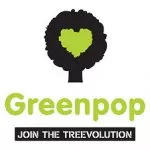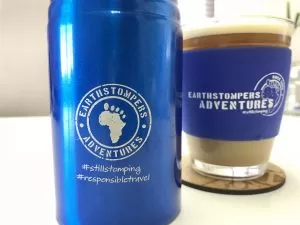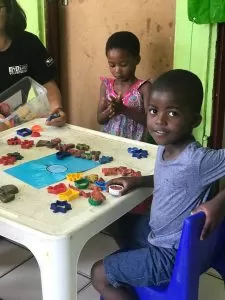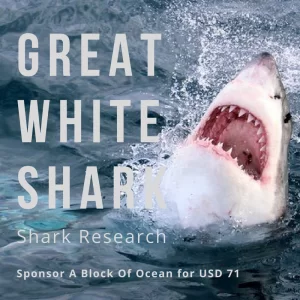
Menu

We at Earthstompers take our impact on the community and environment seriously. We host thousands of people in South Africa annually, and the negative impact of this could be huge if we do not practice responsible travel. We aim to educate each guest who comes on tour with us on how to be a responsible traveller in South Africa.
We are also involved with a variety of initiatives which we believe make a positive impact on our community. Please don’t hesitate to contact us if you would like to know more about these initiatives or volunteer your support while you travel.
 Our colleagues at PG Tops are leading a great initiative called Tourism Boot Camp, aimed at upskilling underprivileged young people and helping them to find work in the tourism industry. Tourism is one of the fastest growing sectors in South Africa, and yet nearly half of young people are unemployed. Tourism Boot Camp aims to bridge this gap.
Our colleagues at PG Tops are leading a great initiative called Tourism Boot Camp, aimed at upskilling underprivileged young people and helping them to find work in the tourism industry. Tourism is one of the fastest growing sectors in South Africa, and yet nearly half of young people are unemployed. Tourism Boot Camp aims to bridge this gap.
Chrissy Human has been volunteering her time to teach the trainees skills in using spreadsheets, understanding and pricing itineraries, and consulting with potential clients.
Hendrik Human is launching a new module in 2019, “Guiding Boot Camp”. This module is aimed at young people who have completed formal guide training, but need practical experience in order to find paid work. The training will consist of one week of classroom learning and three weeks of practical training. Trainees will go along on our Garden Route trips, under the wing of our experienced tour guides, and practice their skills with paying guests from all over the world.
Using our time, resources, experience and knowledge, we hope to have a positive impact on the lives of disadvantaged young people and open some doors into a growing and positive industry in South Africa.
We as a company strive to operate in an environmentally sensitive way by doing the following:
Carbon offsets: We give our guests the opportunity to offset a portion of the carbon emissions of their tour by purchasing trees through Greenpop for planting in South Africa. Trees can be added to your bill when booking your tour!
Minimizing water use: we wash the outside of our tour vehicles only once per tour, using grey or recycled water. (Don’t worry, we regularly clean the inside of the vehicles, and windows will always be kept clean for a clear view of our beautiful country.) We also ask that our guests be conscientious when using water
.

Minimizing waste: Earthstompers staff take reusable water bottles and coffee cups on the road, to minimize the use of disposable cups. We also have reusable shopping bags, so that we don’t take a plastic bag from the till. We encourage our guests to do the same – Earthstompers water bottles, coffee mugs, and shopping bags are all available for purchase while on tour!
Wildlife responsibility: We do not support animal attractions where wild animals are trained or kept in enclosures for human entertainment. Earthstompers does not support riding, touching or walking alongside wild animals. We much prefer the awesome National Parks and game reserves that South Africa has to offer, where tourists can see animals in their natural environment. We hope you will support us in this decision! Please ask if you have any questions about specific attractions. We will continue to make decisions as we go, with the best information we have available and to always put the wildlife first. As a Fairtrade Tour Operator, Earthstompers follows Fairtrade Tourism’s captive wildlife guidelines.
Support local: As a small South African-owned, family-run business, we like to support other small businesses when possible. Along the Western and Eastern Cape there are loads of awesome local options for restaurants, shops, accommodation and activities. We make a point of choosing small, locally owned, owner-run suppliers and service providers when we can. We believe this is a good way to have a direct positive economic impact on local communities, as well as minimizing our carbon footprint.
We are often asked by guests where they can make a contribution or donation, so we have put together the following list of charitable organizations which do good work in our community.

Good Hope Educare is a SAVE Foundation-run school located in the local township, Dunoon. Around 50 children a day come through to Good Hope Educare Centre; all are aged between 0 and 8. The school is divided into 3 classes; babies, middle class and big class. Through the assistance of teachers and volunteers, the children are taught English, maths, art, gross and fine motor skills development. Each child is fed two hot meals a day, breakfast (porridge) and lunch (a stew, pasta or rice with vegetables and a protein). Each child’s development is closely monitored and volunteers are able to provide worksheets and activities that are always challenging the children’s knowledge, enhancing development. Sponsorship goes towards paying teachers’ salaries, food for the children, school materials (books, pens, paper, art supplies, sports equipment), class outings (trips to local parks, water parks, gyms), school renovations (upkeep of kitchen, classrooms, electricity, gas).
To donate, click here: SAVE Foundation– use reference ‘Earthstompers’
The Dyer Island Conservation Trust is based in Gansbaai, South Africa. Many Earthstompers clients travel to this area each week to participate in whale watching or shark cage diving. Dyer Island Conservation Trust is a registered non-profit organisation, founded by conservationist Wilfred Chivell in 2006, which aims to make a real difference for conservation and the community in this critical ecosystem. Current projects include:
